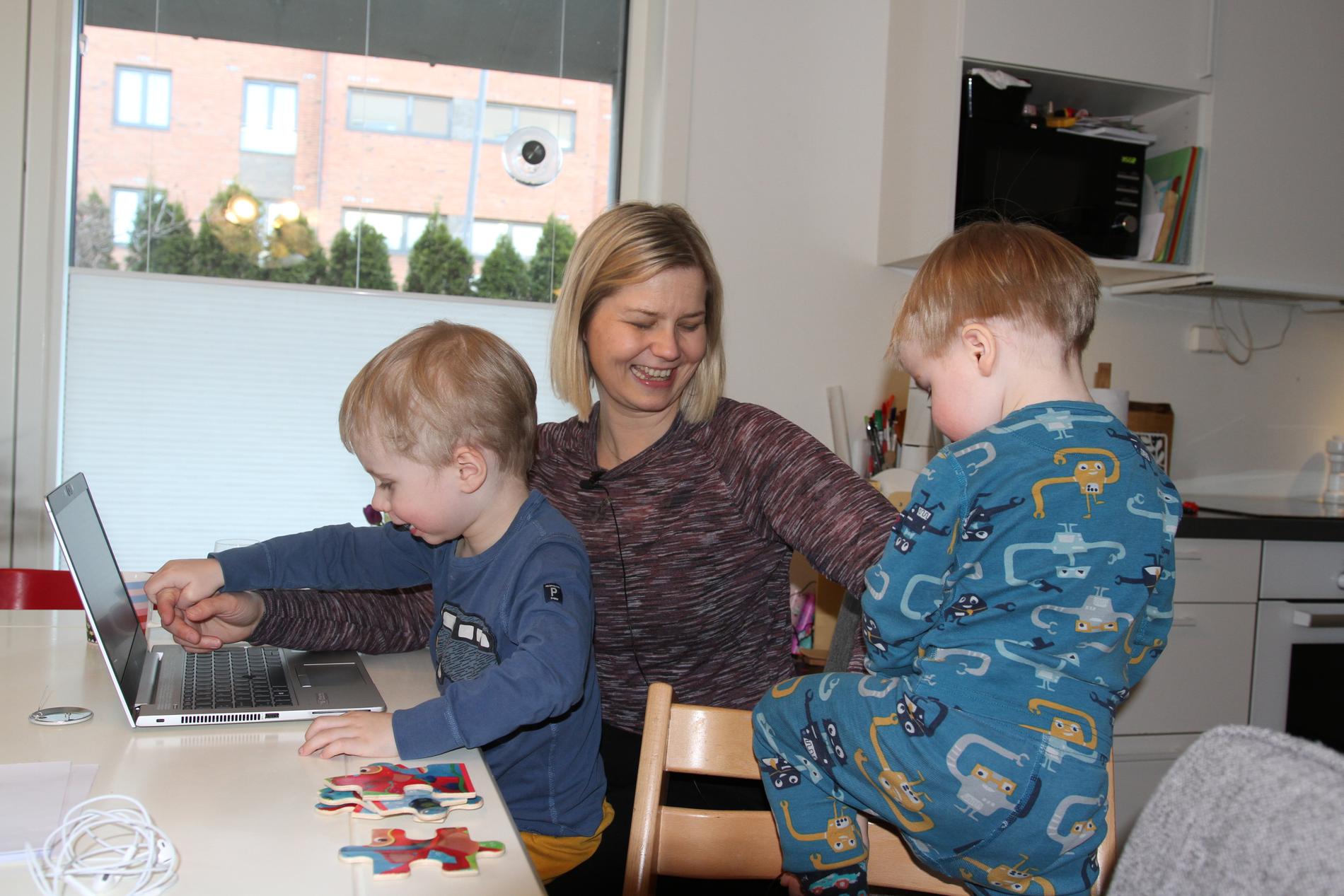Liberal leaders Guri Melby and Sveinung Rotevatn say more opportunities for home offices can help families with children who are pressed for time, allow more people to move where they want and give people more freedom.
– If you take one positive thing out of the pandemic, it’s that many people have calmed down a bit in everyday life. Having a home office was part of it. This is why we will make better deals for the opportunity and freedom that actually exist, Venstre leader Guri Melby tells VG.
The left has earlier took several measures to tighten the regime in the office, so that it is easier to improve the daily life of those who work there.
Even greater flexibility and greater opportunity to work from home when desired could make life easier for many workers in Norway, they believe.
– Families with young children who are short on time get better times in both the morning and afternoon. You can prepare dinner while sitting and working at home and ready to receive the children from school. People who have a travel itinerary don’t have to commute every day, or you can choose to live almost anywhere you want regardless of your job, Melby continues.
Now the left has delivered A proposal on examining the entire Work Environment Act to see what is preventing more people from being able to work from home and to relax regulations where necessary.

Obstacles in legislation
The proposal for more internal offices was signed by Melby, Liberal deputy leader Sveinung Rotevatn and Liberal veteran Alfred Bjørlo.
Rotevatn tells VG that part of the background to this is that they believe there are several hurdles in the current legislation that prevent people from being able to work where they want.
– This is, for example, occupational accident insurance. Unions have been very concerned that they need to be more neutral so that they also cover you if you suffer injuries or wear and tear challenges when working somewhere other than the office. But it can also apply to what is covered by investment in equipment and working time rules in the Working Environment Act, he says.
– There’s no reason to be worse
He points to statistics from the Netherlands and Finland, which both had an average 14.1% home office share before the pandemic, compared to Norway’s 5.4%.
– If it’s about giving people the freedom to decide about their daily lives, there’s no reason why we should be any worse than countries that have pretty similar working lives. So those numbers show that there’s potential.
– Do they work more at home or just work more?
– There are more people working outside the fixed offices, says Rotevatn, and adds:
– There are also probably some who worked harder during the pandemic than otherwise. It’s good that people want to work, but you also need to make sure you have protection for employees who want to work remotely more. It is also the employer’s responsibility to ensure that people work within the regulations and no more than they should.

Easier to move home
Liberal leaders stress that they don’t want more people forced to work from home, but that more people who want to should be given the opportunity.
They also point out that it opens the door for more people to move to places other than work.
– There are many people who usually have a job in a city but want to move to the village they come from and don’t have the opportunity to work there. It gives more freedom. And then companies and municipalities can come up with skills that aren’t necessarily physically with them, Melby says.
He says they have great faith in establishing more office communities and so-called “work centers” in smaller towns and villages.
– We also believe that the public sector, as a large employer, should take the lead and advertise more positions regardless of location. We started with that when we were in government.
I Mars government updated the regulation of the Ministry of the Interior. Melby describes it as a golden opportunity to delve into what is needed to enable more people to have it, which the government has not seized.
– I think what they have done so far in this area shows that they have a rather old-fashioned perception of working life in Norway and are unable to update the regulations in line with what people want.
– Do you like a home office?
So — we don’t have a typical job, we have a position. I don’t think we are a typical worker. But for my part, I think it’s very nice to have a permanent place and an office to go to, and occasionally be able to be somewhere else and work, replies Rotevatn.
Melby replies that she likes to be at work, meeting and talking to people, and thinks it’s important.
– But as a minister and mother of young children during the pandemic, I’ve thought a lot about how wonderful it is that many evening gatherings are digital. This meant I could often go home and have dinner with the kids and put them to bed, and then have another session of work afterward. So it was very important for me to be able to maintain a family life.


